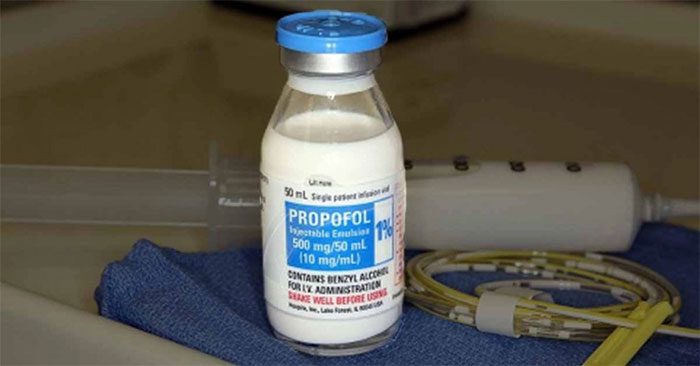According to the National Institutes of Health (NIH), propofol is a medication that slows down the activity of the brain and nervous system. It is commonly used by doctors to help patients relax before and during anesthesia for surgery. This drug is also administered to critically ill patients who require mechanical ventilation.
In technical terms, propofol is used for inducing anesthesia, maintaining anesthesia, and providing sedation.
However, this medication contains neurological inhibitory agents, which has led to its misuse by many individuals as a form of recreational drug. Since 2021, the South Korean government has classified propofol as a controlled substance, prohibiting its indiscriminate use unless prescribed by a doctor for specific medical treatment at a defined dosage.

Propofol is a drug used before and during surgery for anesthesia.
Effects of Propofol on the Body
According to doctors from the world’s leading multidisciplinary hospital – Mayo Clinic, before surgery, medical staff will administer propofol to patients, helping their bodies quickly relax and fall asleep. While under the influence of this drug, breathing, oxygen levels, blood pressure, kidney function, and other vital signs will be closely monitored by doctors to prevent complications.
Propofol at low doses has a sedative effect, while higher doses can induce sleepiness. However, overdose can lead to loss of consciousness and motor inhibition. The drug also affects the central nervous system, cardiovascular system, and respiratory system; however, when used under medical supervision, it poses no significant issues.
Some common side effects of propofol include dizziness, nausea, headaches, low blood pressure, bradycardia, respiratory arrest, and muscle spasms. In some cases, the drug may cause wheezing, muscle pain, rashes, vision impairment, and fainting. It is clear that the indiscriminate use of propofol can be life-threatening.

Many individuals misuse propofol as a recreational drug.
According to the National Center for Biotechnology Information (NCBI), propofol is applied during surgical anesthesia, acting quickly on the nervous, cardiovascular, and respiratory systems with minimal side effects. If an overdose of propofol occurs during surgery, medical staff will have immediate methods to manage the situation to ensure safety.



















































